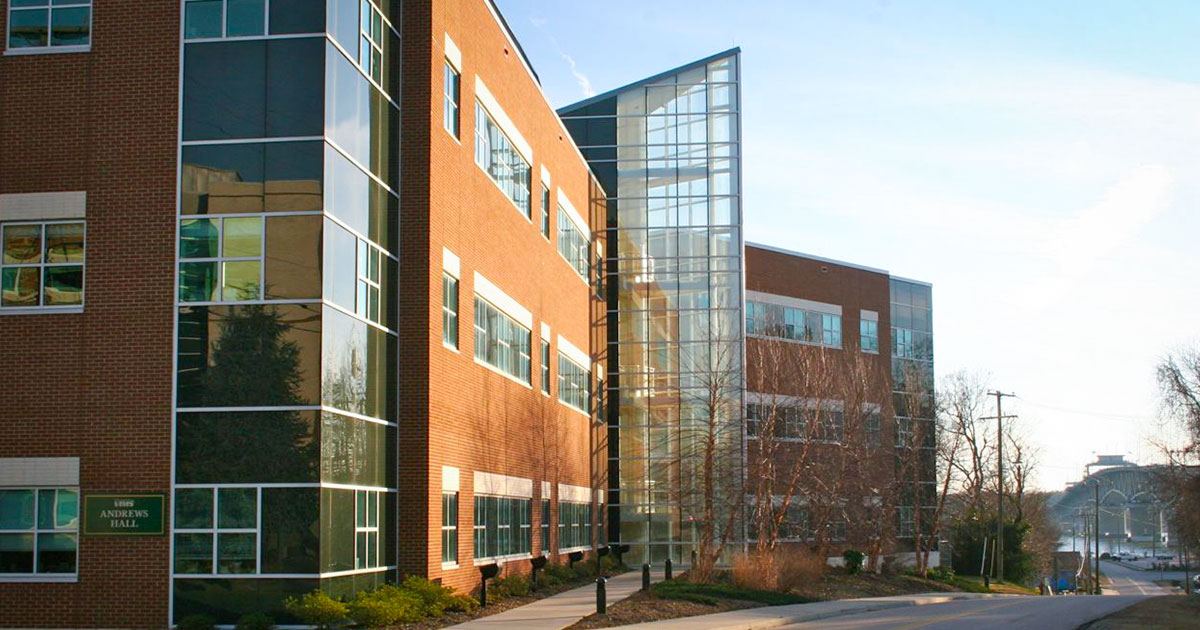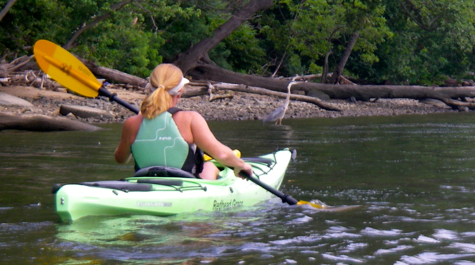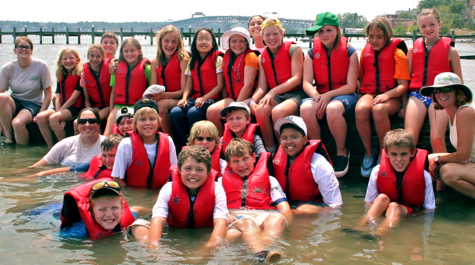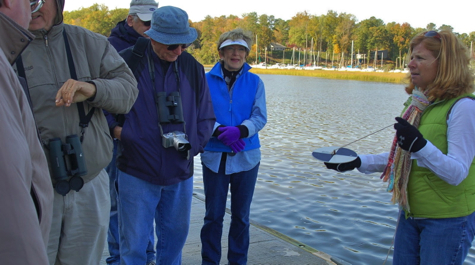VIMS alumna turns kayaks into classrooms
Scientist, businesswoman, and VIMS alumna Jill Bieri (M.S. ’92) turned her dreams into a reality by launching her own company — a non-profit aptly called “Chesapeake Experience.”
The hands-on, educational venture provides kayak excursions led by interpretive guides—passionate people who want to teach others about Chesapeake Bay—and offers opportunities for people of all ages to experiment and learn in the great outdoors as they personally connect with the Bay and its marine life.
“The Bay is a resource that belongs to everyone, and while I don’t think anyone knowingly seeks out harm for it, I think education is key to its future,” Bieri says. “The more you open peoples’ minds, the more they become part of their natural world—and eventually become stewards for it.”
Bieri credits her experiences at VIMS as instrumental to her
own success. “VIMS has opened every door
for me,” she says. “Not only do you meet
great people and get to collaborate with top-notch researchers, but it becomes
part of who you are. VIMS has really
impacted my whole career and people are really impressed by a degree from this
place.”
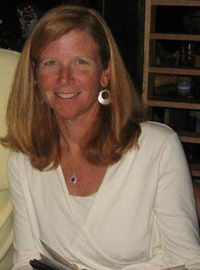
Even though Bieri took a different path than many of her fellow graduates, she continues to maintain the personal connections she made during her time here stating that she misses the people and even admits she was a little apprehensive when it came time for her to leave.
“VIMS is a very elite institution with so many great things going on, and I was scared to leave and find out what else might be out there,” she explains. “Even though VIMS is such a special place, I am happy to say that my experience here led me to realize my dream and create my own special place.”
Bieri earned her Master’s degree from the School of Marine Science at VIMS in 1992, and then continued to work at the Institute until 1995 as a scientific researcher studying underwater grasses. She served in various other positions during the following years, including stints at the Ocean Conservancy, the National Oceanic and Atmospheric Administration (NOAA) and the Chesapeake Bay Foundation.
Through her work in the science and non-profit world, she learned to write grants, create budgets, and hire staff—skills that proved key to establishing and running a successful business.
With Chesapeake Experience, Bieri zeroed in on what she thought to be an open niche in Hampton Roads—educating area youth about the Bay. “I love working with the kids, but I also love working with teachers because you feel like you impact so many people through them because teachers go back to the classroom and share with their students what they learned.”
What started in 2007 as a part-time job with just 5 week-long summer camps per year has now grown to a full-time endeavor with 17 summer camps, corporate retreats, custom trips and even moonlight paddles on the Bay. “It has really taken off in a way that makes me very proud,” says Bieri.
Bieri’s passion for the Bay was sparked during her undergraduate years at Salisbury University in Maryland. She came to VIMS in 1990 to pursue her love for marine science and seek new opportunities outside her small town of Snow Hill on Maryland’s Eastern Shore.
Though her initial goal was to become a high school biology teacher, Bieri’s dreams soon started to take a turn. After spending a few years working in laboratories and offices she followed her bliss out onto the Bay where she immersed herself in educating others—while paddling a kayak.
“It started out as a dream, but now it’s real,” she says. “People say you should do what you love, and I am very privileged to be able to say that I am one of those people who gets to do what they love every day.”
Bieri prides herself on being a scientist who can talk with people, and encourages the incoming and current students at VIMS to look beyond the laboratory. “We do research to figure out problems and solve them, but we are never going to solve anything unless people understand what is going on,” she says. “You can’t do that by just writing a scientific report. You have to be able to talk to people and explain how your research and findings relates to their lives.” For more information about Chesapeake Experience, visit their website at: http://www.chesapeakeexperience.org/aboutus/about.htm.
